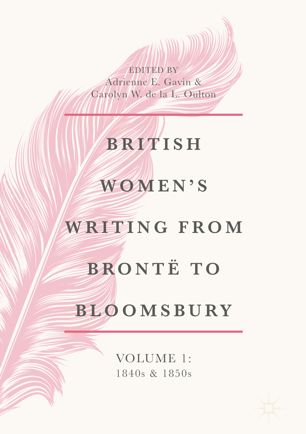

Most ebook files are in PDF format, so you can easily read them using various software such as Foxit Reader or directly on the Google Chrome browser.
Some ebook files are released by publishers in other formats such as .awz, .mobi, .epub, .fb2, etc. You may need to install specific software to read these formats on mobile/PC, such as Calibre.
Please read the tutorial at this link: https://ebookbell.com/faq
We offer FREE conversion to the popular formats you request; however, this may take some time. Therefore, right after payment, please email us, and we will try to provide the service as quickly as possible.
For some exceptional file formats or broken links (if any), please refrain from opening any disputes. Instead, email us first, and we will try to assist within a maximum of 6 hours.
EbookBell Team

4.7
96 reviewsThis five-volume series, British Women’s Writing From Brontë to Bloomsbury, 1840-1940, historically contextualizes and traces developments in women’s fiction from 1840 to 1940. Critically assessing both canonical and lesser-known British women’s writing decade by decade, it redefines the landscape of women’s authorship across a century of dynamic social and cultural change. With each of its volumes devoted to two decades, the series is wide in scope but historically sharply defined.
Volume 1: 1840s and 1850s inaugurates the series by historically and culturally contextualizing Victorian women’s writing distinctly within the 1840s and 1850s. Using a range of critical perspectives including political and literary history, feminist approaches, disability studies, and the history of reading, the volume’s 16 original essays consider such developments as the construction of a post-Romantic tradition, the politicization of the domestic sphere, and the development of crime and sensation writing. Centrally, it reassesses key mid-nineteenth-century female authors in the context in which they first published while also recovering neglected women writers who helped to shape the literary landscape of the 1840s and 1850s.